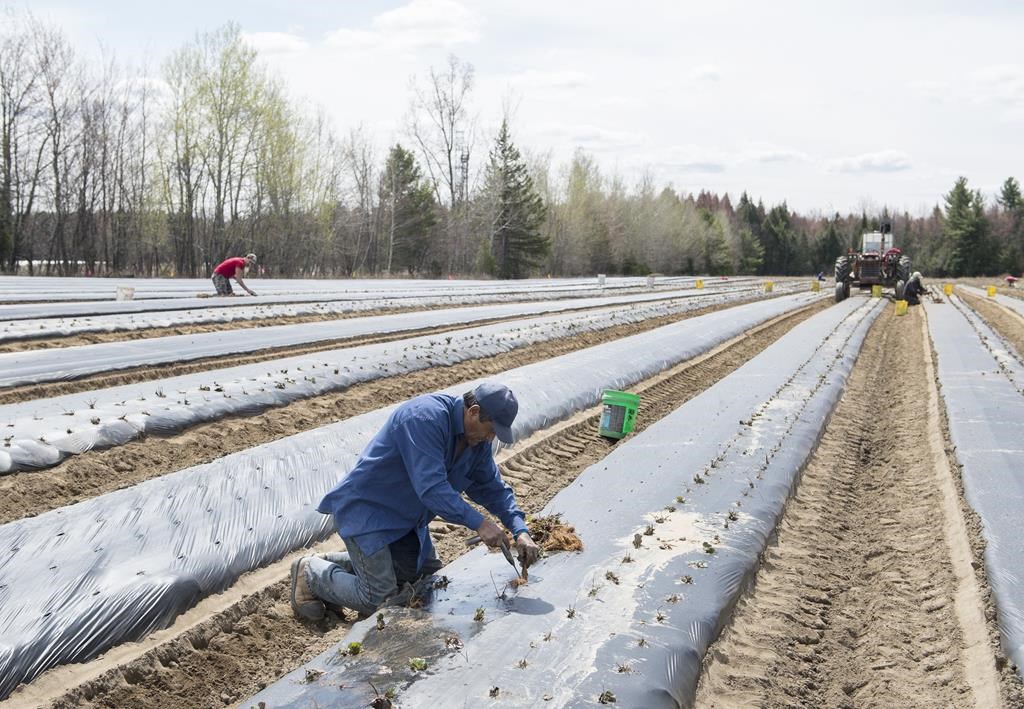New Brunswick has reversed its ban on temporary foreign workers almost a month after it was first announced.

Premier Blaine Higgs said that the decision was made by the all-party cabinet committee on COVID-19 after consultations with public health professionals left them satisfied that the risk posed by workers is low.
“Now that we have consulted with experts including public health authorities we’ve determined that the risk to New Brunswickers is low as long as safety measures remain in place,” Higgs said.
Seasonal workers, who play a critical role in the province’s agriculture and seafood sectors, will be allowed to enter the province starting on May 29.
Temporary foreign workers will have to self-isolate for 14 days once they arrive.

The decision comes after weeks of pressure from agriculture and seafood producers who said the efforts to replace foreign workers with local labour were not working.
Higgs acknowledged that the plan to connect unemployed New Brunswickers with businesses in need of workers was not as successful as he had hoped.
“While we have made great strides with identifying individuals whether they were students or other individuals who have come forward, I think it’s in the 400 range, it is necessary to ensure that additional workers will be available,” Higgs said.
“In both cases there’s a need that hasn’t been filled. I think that it’s recognizing that we need to do that.”
A group of several agricultural organizations said yesterday that they could likely salvage their seasons as long as the ban was reversed immediately.
Questions about COVID-19? Here are some things you need to know:
Symptoms can include fever, cough and difficulty breathing — very similar to a cold or flu. Some people can develop a more severe illness. People most at risk of this include older adults and people with severe chronic medical conditions like heart, lung or kidney disease. If you develop symptoms, contact public health authorities.
To prevent the virus from spreading, experts recommend frequent handwashing and coughing into your sleeve. They also recommend minimizing contact with others, staying home as much as possible and maintaining a distance of two metres from other people if you go out.
For full COVID-19 coverage from Global News, click here.




Comments